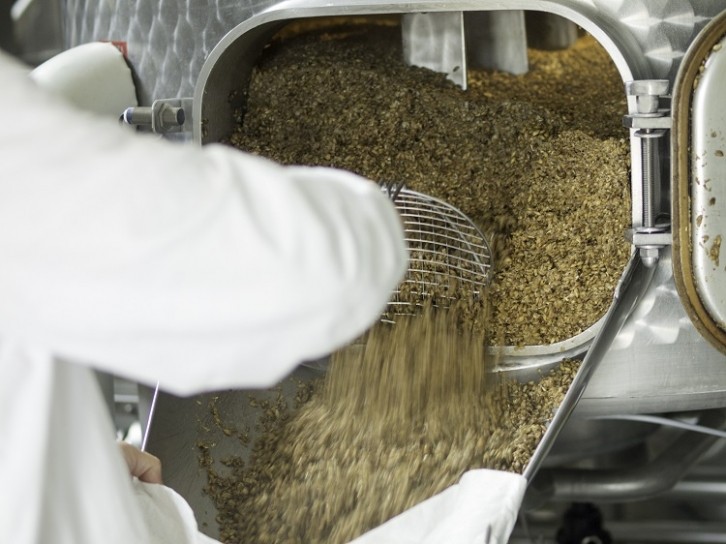Europe’s largest food upcycling plant opened for spent grains

Upcycled spent grain, one of the food industry’s key by-products, has been used for a range of foods in recent years. Spent grain is a by-product of the brewing industry, and until recently most of it was wasted.
Now, Swiss food-tech start-up Upgrain is collaborating with brewery Brauerei Locher to open Europe’s largest food upcycling facility for upcycling spent grains, which has now opened in Appenzell, Switzerland.
The facility will, according to those involved, be capable of transforming 25,000 tonnes of spent grain a year into valuable raw materials for use in the food industry.
Reducing carbon emissions by upcycling grain
Brauerei Locher already has experience upcycling spent grain into a range of products, including pizza, lasagne, meat substitutes, muesli and even crisps. Upgrain has also developed a process to upcycle spent grains, which will be used in the new facility.
The upcycled grain will come in three forms: the classic variation, containing 27% protein and 47% dietary fibre, which works as a flour substitute and improves nutritional value without altering taste or texture; a high protein equivalent with 45% protein along with plenty of vitamins and minerals, suitable for high protein snacks and beverages; and a high fibre version, with 70% fibre, good for improving the texture of meat substitutes and baked goods.
The new type of brewing process used in the plant, according to the companies, will significantly reduce carbon emissions and water use; Brauerei Locher alone aims to save 5,500 tonnes of CO2 yearly. Furthermore, because of the potential to use upcycled grain as protein in plant-based products, the use of such a plant will free up arable farmland that would otherwise be used to grow wheat, soy and pea for protein.
“The opening of our plant marks a crucial step towards a more sustainable food production. We’re showing that economic success and environmental responsibility really can go hand in hand,” says Karl Locher, owner of Brauerei Locher and administrative board member of Upgrain AG.
Using brewer’s spent grains
“We will establish brewer's spent grain as a valuable resource in food production on a global scale and, in turn, make a positive contribution to reducing carbon emissions and conserving our natural resources. Thanks to the industrial scalability of our upcycling technology, our plant can be used with immediate effect all over the world,” said Vincent Vida, CEO of Upgrain.
Brewer’s spent grains have several uses in the food industry. For example, the start-up ÄIO uses spent grain to create more sustainable substitutes for key ingredients such as palm oil and animal fat.
As well as grain, brewers’ yeast can also be used. This is what the start-up ProteinDistillery is doing, using brewer’s yeast to create a functional protein that can be used for a range of functions in the food industry. The EGGcited consortium, coordinated by food research company NIZO, has also produced a protein from brewers’ yeast, for use in egg alternatives.







